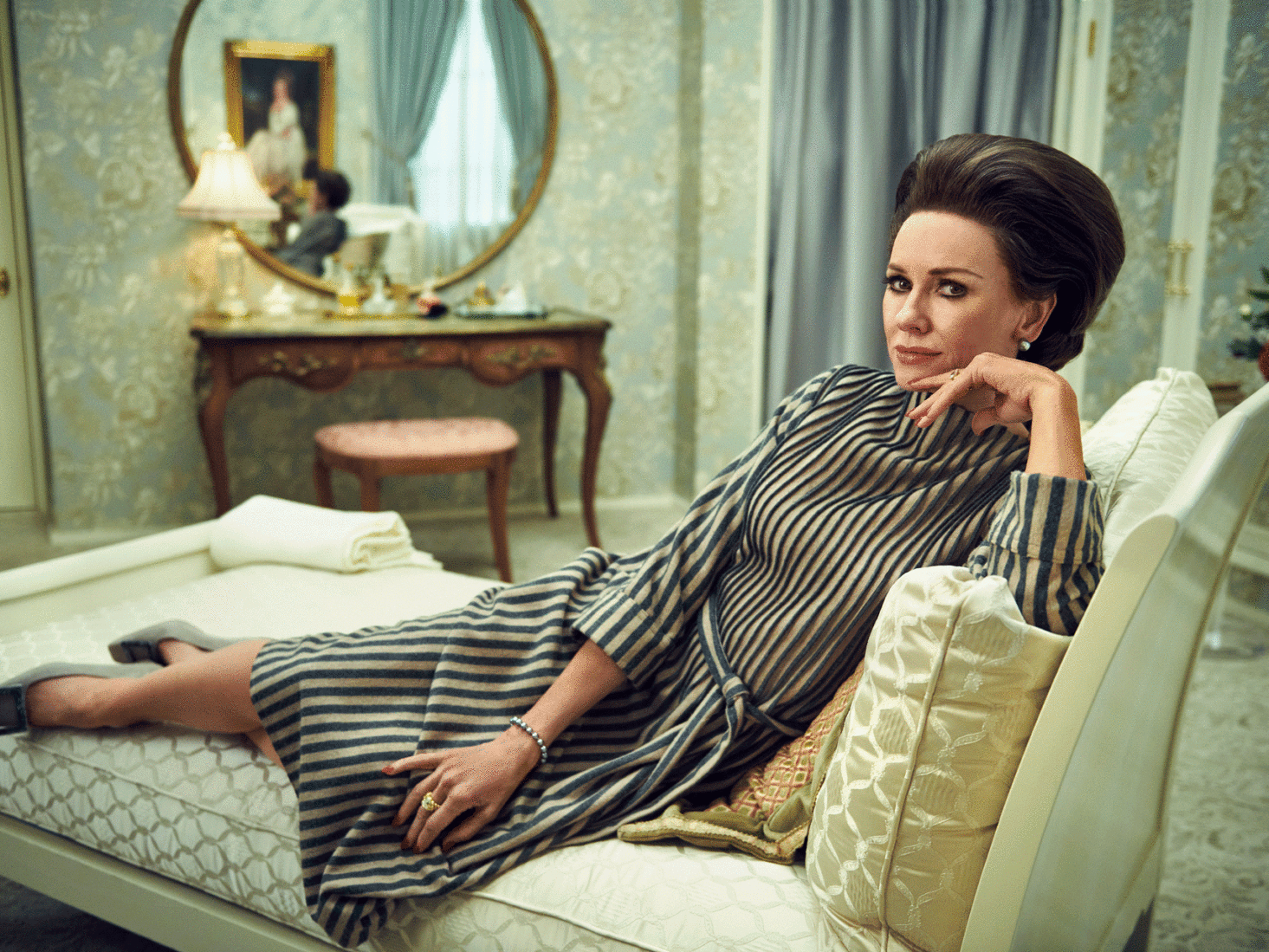
Capote vs The Swans: The true story of how Truman Capote exposed New York’s elite
A new drama reveals how Manhattan's socialites made the novelist pay after he published defamatory details of their scandalous personal lives
The lives of the wealthy and powerful have always held a certain allure. We devour them in popular culture, whether that’s ogling multi-million-dollar mansions on Selling Sunset or transporting ourselves to a world of splendour in The Great Gatsby. The characters – the rich – hold an antithetical appeal; we revel in and are reviled by their excess, both attracted and repulsed by their hammy, histrionic existences.
If The Real Housewives, Gossip Girl, and The Gilded Age are your poison, then block out the next seven Wednesday evenings, because there’s a new ultra-glossy high drama in town: Capote vs The Swans. The second season of Ryan Murphy’s Feud series delves into the life of American author Truman Capote, and specifically his blacklisting at the hands of the high society women whom he called his ‘swans’.
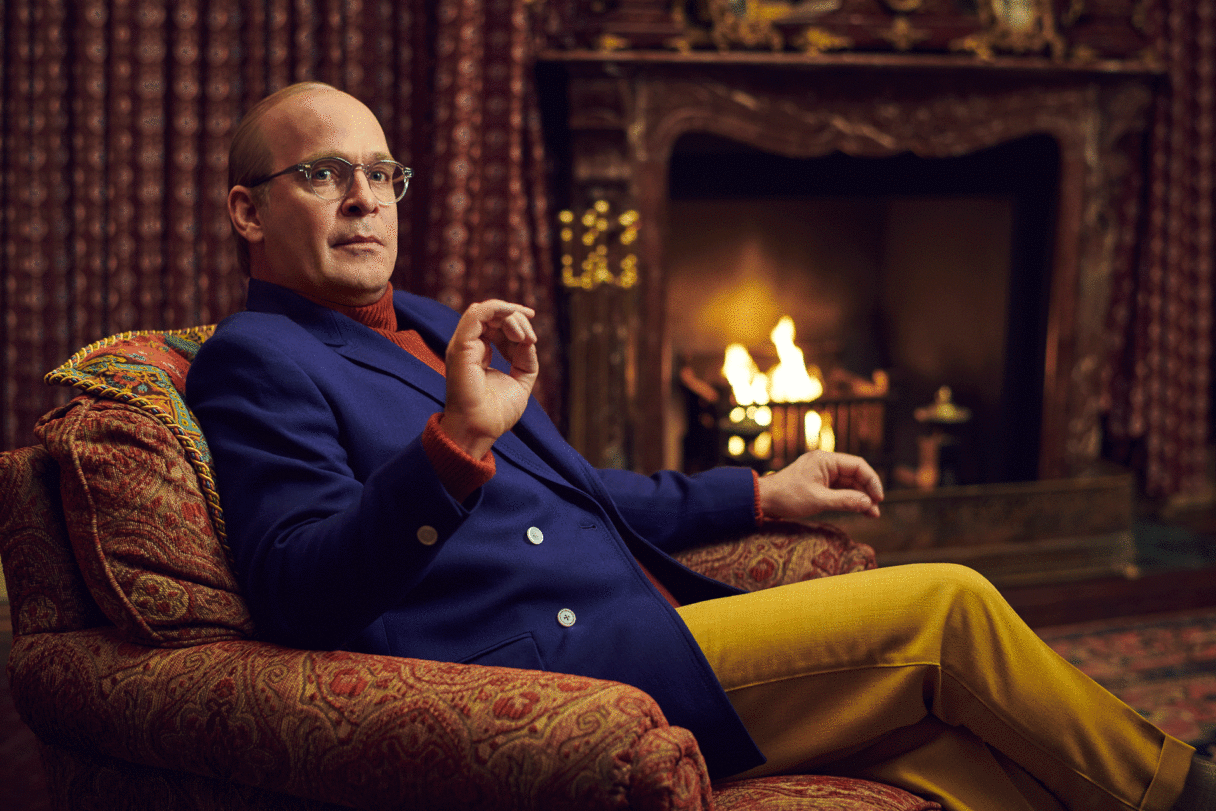
The period drama is based on Laurence Leamer’s book Capote’s Women: A True Story of Love, Betrayal, and a Swan Song for an Era – an account of how Capote destroyed his powerful friendships by writing a thinly-fictionalised account of the personal lives of New York socialites. But to what extent is the series true to life? Has Murphy done with Capote’s story what the novelist did to his coterie in pursuit of creative acclaim?
Capote, played by The White Lotus’ Tom Hollander, was catapulted to glitterati status after the success of his novels Breakfast at Tiffany’s and In Cold Blood, which has long been credited with kickstarting the genre of true crime. Well-known for his distinctive, high-pitched voice, he often claimed to know people whom he had never met, such as Greta Garbo, and harboured a longstanding rivalry with Gore Vidal. He moved in eclectic circles made up of authors, businesspeople, film stars, and royalty and, in 1966, hosted the legendary Black And White Ball at the Plaza Hotel.
His swans accompanied him to such parties, as well as on yachts and trips to Europe, during which lips were loosened by plenty of drink (and, in Capote’s case at least, drugs). Little did his friends know, he was secretly documenting their lives; lives that would become fodder for what he hoped would be his magnum opus.
In 1975, Capote published four chapters from his unfinished novel, Answered Prayers, in Esquire magazine. The first excerpt, Mojave, was favourably received, but the second, La Côte Basque, set all hell loose. In it, the novel’s narrator, P.B. Jones, lunches with Lady Ina Coolbirth; the subjects of their conversation are thinly veiled versions of the swans. Thus, the dirty laundry of Manhattan's elite was aired nationwide, spilling gossip about everyone from Princess Margaret to Jackie Kennedy Onassis, who is described as “unrefined, exaggerated” in the analogy.
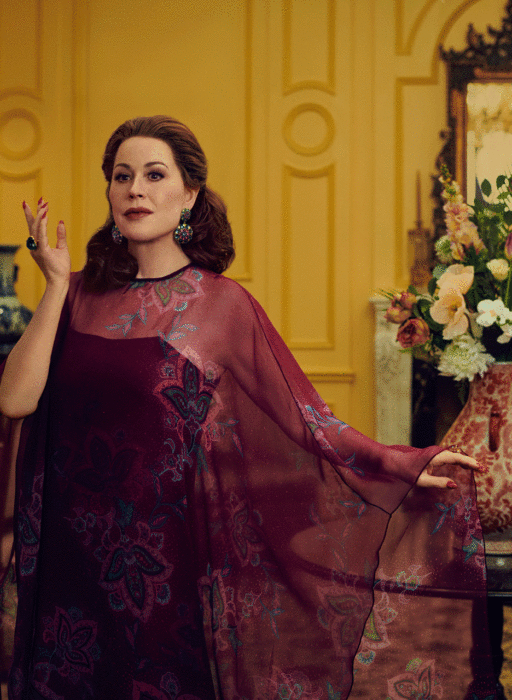
Molly Ringwald as Joanne Carson
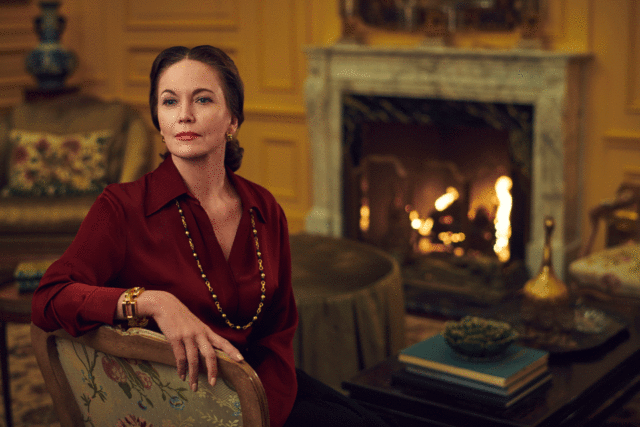
Diane Lane as Slim Keith
The fallout was swift and harsh. Capote never spoke to many of the swans again, and never truly recovered from the social ostracism. Bereft and blindsided, he told Playboy magazine: “All literature is gossip. What in God’s green earth is Anna Karenina or War and Peace or Madame Bovary, if not gossip?”
So, who was this immaculately dressed and immensely wealthy group of ladies capable of orchestrating ruination over lunch? All of the characters depicted in Feud are real: first, there was Babe Paley, played by Naomi Watts – Capote’s favourite of the swans. Paley was the ultimate socialite: a fashion editor at Vogue before marrying CBS radio founder Bill Paley, she was, and remains, the quintessence of mid-century glamour, and was inducted into the International Best Dressed List Hall of Fame in 1958.
Capote famously remarked, “Babe Paley had only one fault. She was perfect. Otherwise, she was perfect.” Sure enough, her ‘perfection’ proved to be her fatal flaw when Capote shattered its shiny illusion in Answered Prayers – the excerpt included anecdotes about Bill’s extramarital affairs, exposing how Paley’s flawless exterior concealed an unhappy marriage. Paley is also depicted as having a cold, distant relationship with her children; indeed, Capote observes that all of the swans were bad mothers.
The pair never spoke again, and Paley died suddenly from cancer at the age of 63. As depicted in the series, she maintained her status as an exceptional host until the end, meticulously planning her own funeral.
Then there was Slim Keith, played by Diane Lane, who has been dubbed the original ‘California girl’. By the age of 22, she had already appeared in Harper's Bazaar and, as a young woman, was pursued by Clark Gable and Ernest Hemingway. Keith is credited with discovering Lauren Bacall and bringing her to the attention of her then-husband (she was married three times), film director Howard Hawks.
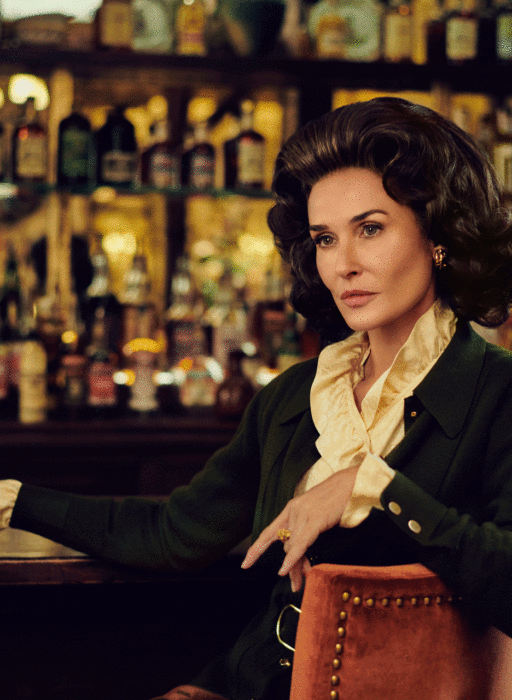
Demi Moore as Ann Woodward

Callista Flockhart as Lee Radziwill
In Capote’s metaphor, Keith was Lady Coolbirth. In Feud, she is the most set on exiling Capote, even turning Paley away from her desire to reconcile with him at the end of her life. There’s truth in this interpretation: Keith got the final word when she spilled personal details about her relationship with Capote in George Plimpton’s biography Truman Capote: In Which Various Friends, Enemies, Acquaintances and Detractors Recall His Turbulent Career.
However, the implications of Capote’s work went deeper – and darker – than public humiliation for some of the swans. Ann Woodward, a former showgirl played by Demi Moore in the series, wasn’t even afforded a proper pseudonym in Answered Prayers; her ‘fictionalised’ counterpart, Ann Hopkins, shoots her husband, claiming to have believed he was a burglar. This bore uncanny similarities to the death of Woodward’s husband by gunshot wound in 1955. While, at the time, a jury declared it an accident, Capote’s accusation was explicit and, shortly before the stories were scheduled for publication, Woodward died from ingesting cyanide.
Not all of the swans were burned by Capote, however. Epitomised by her blonde-haired, patrician beauty (Capote once described her as “blanc de blanc perfection”), CZ Guest (a play on her nickname, Sissy) was a muse to Andy Warhol, Cecil Beaton and Salvador Dalí. Played by Chloe Sevigny, she was never far from the headlines, and once rode a white horse into the ballroom at the Waldorf Astoria. Guest was one of the few swans who remained in touch with Capote.
Ditto Lee Radziwill, who remained largely unsmeared by La Côte Basque. Radziwill is probably the best-known of the swans, as both Jackie O’s sister and the mother-in-law of The Real Housewives alum Carole Radziwill. Lee owned New York high society from the day that a full-page photograph of her debutante’s gown was featured in Life magazine. She and Capote travelled with The Rolling Stones during their 1972 tour, and her homes were regularly featured in magazines such as Elle Décor.
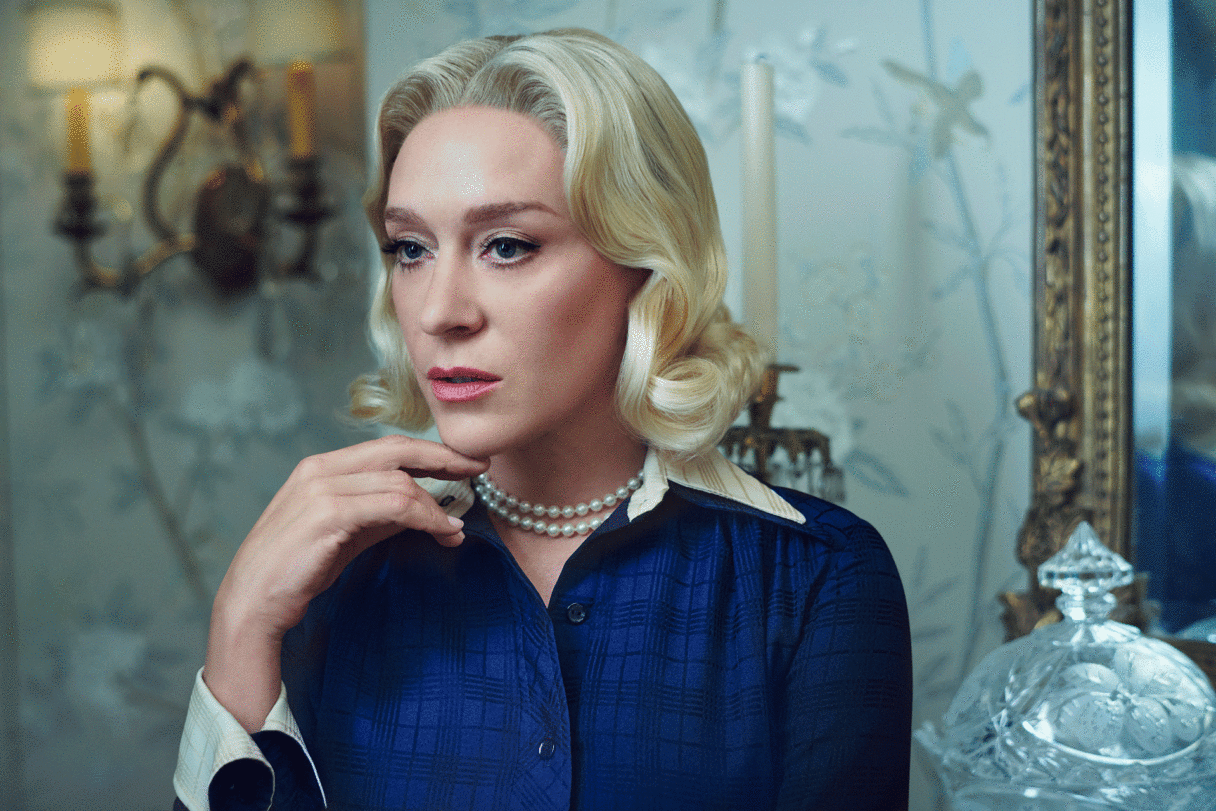
Finally, there was Joanne Carson. Although in the series Capote makes fun of her California decor and boring parties, in reality, she probably ends up being his most loyal friend. It was at her house that he died in 1984, at the age of 59.
Capote’s death came at the end of a long, slow demise; the aftermath of the publication is said to have pushed him to new levels of drug and alcohol abuse and, in 1978, he did an on-air interview while intoxicated, confessing he'd been awake for two days and portending, “I'll kill myself... without meaning to”. He continued to insist that Answered Prayers was nearly complete, and – rather tragically – was reportedly planning a reprise of the Black And White Ball. Vidal cuttingly pronounced his death a “wise career move”.
Feud: Capote vs. The Swans is pure art – with long, lingering shots of food, fashion and jewels paired with ingenious cinematic flourishes. Take, for example, the entire third episode, which chronicles the Black and White Ball, being shot in black and white – not just because of the theme, but also because a documentary about Capote was filmed the same year, which allows Feud to adopt that format to ‘interview’ some of the swans. It’s a level of attention to detail that delights, but, at the end of the day, it is the tantalising plot line that is the real winner. Set in a world of elites that is stranger than fiction, this story needs little embellishment.
The first episode of Feud: Capote vs. The Swans is now streaming on Disney+.






